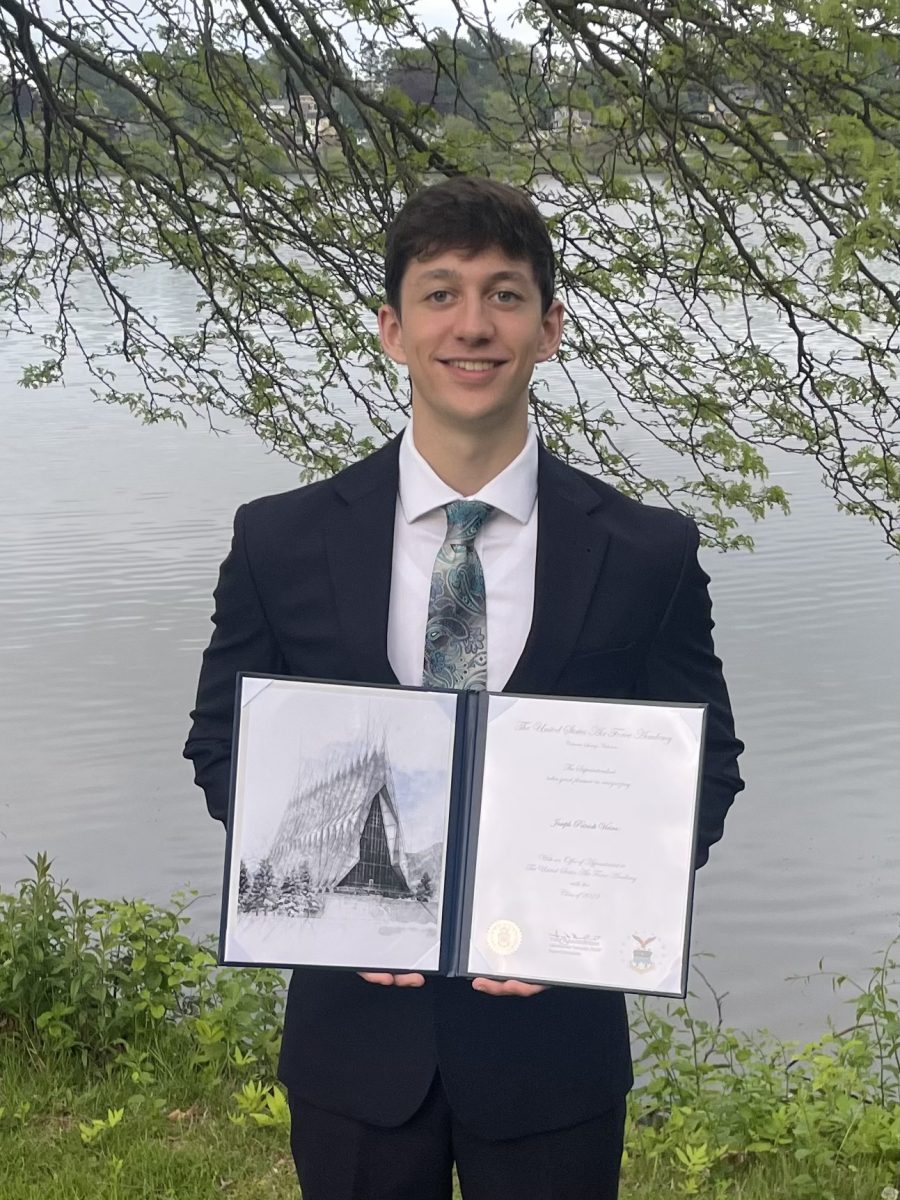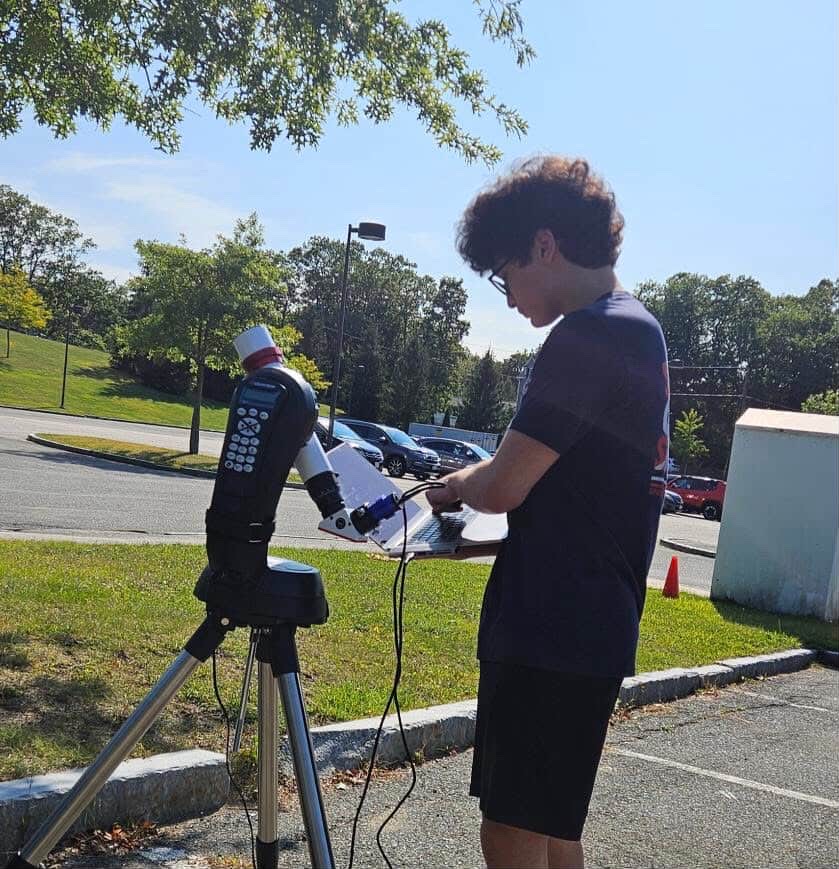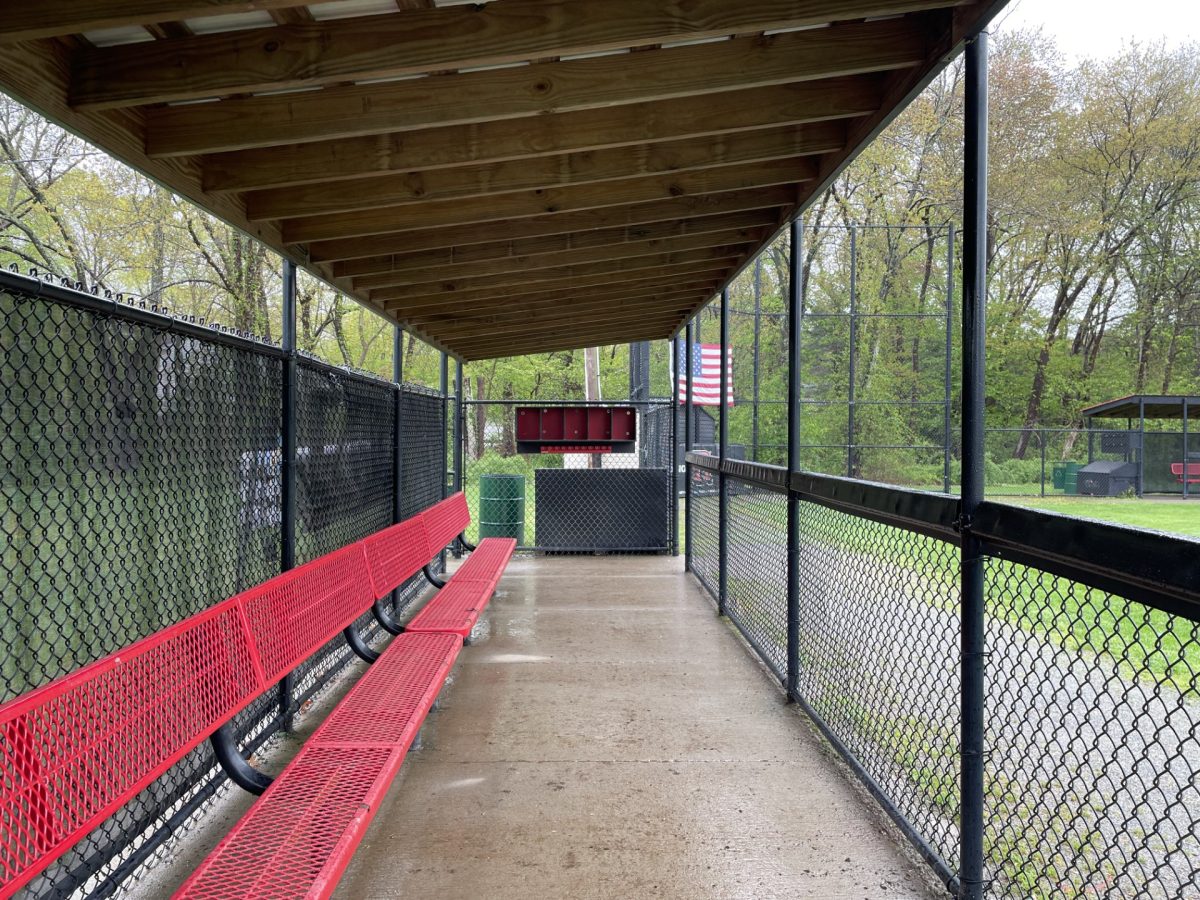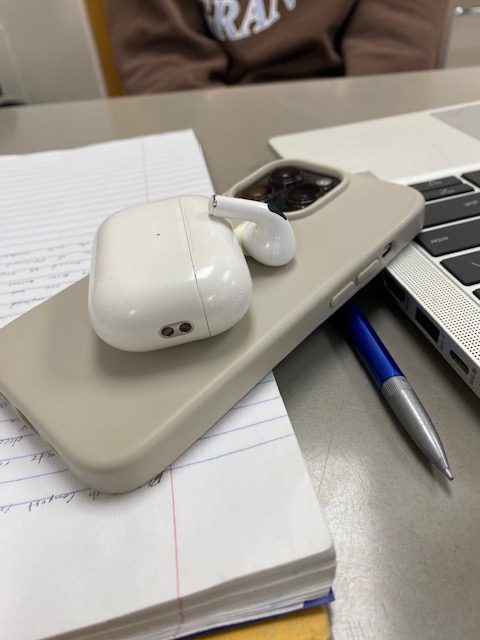In the fall of 2024, RMHS will switch to a new bell schedule, one which includes a five day rotation instead of seven, eliminates current practice of scheduling semi-daily extra blocks for students in AP science classes, and ends the school day at 3:05 pm instead of 3:02.
RMHS has not significantly changed its bell schedule or day rotation for over a decade, but the administration is changing the schedule next year for a variety of reasons.
RMHS Principal Ms. Callanan said, “Schools go through this conversation a lot about looking at their internal schedule,” and emphasized that RMHS had done so in order to improve four “priority areas”. According to the email communication sent to the RMHS community, the schedule change priorities were:
- Increasing time on learning for students
- Increasing opportunities for student engagement
- Improving equity for students and academic departments
- Creating additional common planning time for faculty
Increasing time on learning
The most important goal of RMHS’s schedule change was to try to extend learning time and use the school hours more efficiently. “One of the things that schools have to do is meet 990 hours of education time every year,” Principal Callanan reported.
She said, “The district paid… for a consultant group to come in and look at the efficiency of the internal schedule of the school day” and the consultant said it would be helpful to “make a few little tweaks [to the schedule], [so] it could be 1010 [hours], so if we do have a strange schedule, if we wanted to offer the PSATs for example, during the school day, we have some wiggle room.” She said that being able to fit odd schedules in when needed would be beneficial to the school and the student body as a whole.
To address this goal, the new schedule involves dropping two classes on Days 2 and 4, which eliminates a passing period, and adding three minutes to the end of the school day. Though those changes may seem minor, Ms. Callanan’s email stated, “The added 3-minutes at the end of each day alone increases the time on learning by 9-hours over the course of the school year.”
Increasing student engagement and common teacher planning time
In terms of increasing student engagement and common planning time for teachers, Ms. Callanan stated that this was difficult in the old schedule due to the lack of consistency in the length of each block.
English teacher Ms. Woodworth said having this consistency would be an improvement from the old schedule in terms of her teaching and lesson planning.
“This year, I have three sections of English 11. One is B block, one is E block, one is F block. And depending on the week, some of them have four classes, some have five classes that week, which makes it really hard to stay on track and adds a lot more work to my job,” she said.
She also said that the new schedule would help students stay on track, because “if I’m more organized and I’m more confident about exactly what we need to get done that day, then it’s more clear for everyone involved.”
Ms. Callanan said that the new schedule addresses this issue. “I think what some of the kids especially like [is] that all classes start and stop at the same time. So it’s just a little bit more predictability. Teachers like that as well.”
Increasing Equity for Students and Departments: AP Science Blocks
The goal of increasing equity for students and departments led to the most controversial aspect of the new schedule: the removal of extra blocks for AP science lab classes, including Chemistry, Physics, Environmental Science, and Biology. Those classes currently are assigned an extra period every other day in the rotation.
The extra blocks have been in place for many years; AP Chemistry teacher Mr. Buono said, “I think that we’ve had the doubles for half a century, literally.”
But because of those blocks, Ms. Callanan stated, “A lot of times [students] couldn’t fit enough AP [classes] into their schedule.” Her email communication also stated that the goal was to bring more “choice and flexibility” for students to “pursue an interest, make their transcript more competitive, or both.”
AP Computer Science teacher Mr. Strout, who is also responsible for creating the school’s master schedule, also believes that the elimination of double blocks will allow students to have more flexibility when choosing classes.
“I definitely think we’re gonna see students take more APs. I think they’ll also have more flexibility with taking APs and other classes that didn’t always work out well,” he said.
Another benefit of the new schedule is that it will make it easier to create a master schedule of classes and to fit students’ requirements and desired classes into their schedules.
Mr. Strout says that removing double blocks for AP sciences will make scheduling those classes easier. “We can then move the science classes to any period of the day. Previously, science classes could only be A, C, E or G with the labs B and F,” he said.
Ms. Callanan added, “Because of that period and a half that the AP sciences meet, it makes it hard to schedule anything else other than studies opposite of that.” She said PE classes can be scheduled to fill the gaps, “but those PE classes fill up pretty quickly.”
There was also a sense of inequity between the academic departments in that AP Science classes were getting more time than other AP and academic classes in the building.
Mr. Strout, whose Computer Science class did not have an extra block, said, “I really don’t think that time was equitable between all APs. I think science getting 50% more time than other APs isn’t particularly equitable.”
He argued, “Every class would like to have more time.” He admits, “I understand science doesn’t want to lose that time. It’s just we only have so much time in the day.”
English teacher Ms. Woodworth stated, “I do agree with [Ms. Callanan’s] decision. No other AP classes have double blocks. No other classes in general have double blocks.” She admits that she “definitely can see how it would be an adjustment for science classes and could be more of a challenge, but since no one else has them, I do think it’s fair.”
Ms. Callanan also offered, “I do know that there are no other schools in Middlesex league that have double science blocks.”
Understandably, however, the current AP Science teachers are concerned about what the decision means for their classes.
AP Chemistry teacher Mr. Buono says that teaching his class without double blocks will be very difficult. “We do a lot every day. We don’t really waste class time at all. And so figuring out how to teach as effectively as I do now with 40% less time is going to be very, very challenging and will definitely have an effect on AP scores.”
Without the extra time, he is expecting to have to reduce the amount of labs done in the class from 19 or 20, down to 7 or 8.
And while he does acknowledge that many schools do not have double blocks, he says that other teachers in New England “tend to have to give a really significant summer assignment. Some of them even have kids come in before school for a kind of extra class.”
He also notes, “A lot of people fail to appreciate that a [year-long] class of AP chemistry is not replacing one single semester class at the undergraduate level. It’s replacing four undergraduate classes.”
Ms. Leiper, who teaches AP Physics C: Mechanics and Electricity and Magnetism, will also be affected by the schedule change. AP Physics C will be broken into one year of mechanics and another year of electricity and magnetism.
She says that without the double blocks, she’ll try not to skip any content. “However, I know that some of the units we will have to fly through, and students will be dissatisfied at the end.”
She said that because of the faster pace, “We’ll be taking a test and they’ll say, ‘But I need another week to ask these questions.’ And I’ll be like, ‘Well, we don’t have it. So I still plan to cover all the content. I wouldn’t cut anything out. But I do think that students will find that I’m kind of pushing tests down their throat.”
When asked about the effect on AP test scores, Ms. Leiper said it would be negative. “I see our test scores going down. I don’t even know what to expect. I just know that we’re going to be rushing through [the course content] a lot faster, and students won’t have the calculus background because we’re doing it as juniors. So we’re gonna have to wait and see.”
Current AP Physics 1 student, Alistair Lyons (‘25), talks about how double blocks were used in his class. He said, “Half the class was spent for lab, half the classes spent in lecture.” When asked how important the labs were to the class, he said, “I think the labs help cement information that is otherwise not really perfectly cemented in people’s brains because it lets you actually physically see what you’re learning and that’s very useful.”
Process of changing the schedule
The process for making the schedule has been in effect for a while. Ms. Callanan said that there was a scheduling committee that had started meeting even before she came to RMHS in the fall of 2022. She said, “There’s a scheduling committee that met for the past several years after school comprised of staff members. And at one point… they proposed a whole bunch of different schedules, like a full waterfall schedule or going to eight periods or only having a block schedule” but the schedule that was piloted was what the committee had finally narrowed it down to.
While the committee was meeting, teachers were informed that the schedule would be changing. However, Ms. Leiper said that the teachers were not initially aware of what would change in the schedule.
She said, “I didn’t feel like the bell schedule, whether or not it changed, would impact me all that much. And then it became clear that this schedule change also was discussing whether or not science has extra time, which we didn’t initially know. And that became a much harder conversation.”
Ms. Callanan said that she tried to make the intentions clear.
“My philosophy is to be as transparent as I can, and communicate early and often. I try to communicate with any groups that I think had a stake or stakeholders as much as I could and make sure that my communication was honest and clear.”
To further ensure that any newly proposed schedule would be fully tested and understood by the students and staff, RMHS instituted a pilot schedule during the months of January and February. This included a 5 day rotation, followed by two days of longer blocks every other week.
When students and staff were surveyed about the pilot, Ms. Callanan said, “The feedback about the block scheduling was not positive” and teachers said they had difficulty teaching on a regular schedule and then flipping to the block,” so that was eliminated in the final schedule for next year.
For the days 1-5 schedule, however, the feedback from students, parents, and teachers was “Overwhelmingly positive”, according to Callanan.
Lyons (‘25), for one, is excited for the change. “I’m very happy we’re doing it next year. It’s gonna spice things up. And since it’s one through five that also makes more logical sense because it’s like there’s five days in a week. Plus, with every class being the exact same length, that will make it easier for newer students coming in to understand the schedule.”
Callanan says that this was exactly the point of changing the schedule. And though she can “understand the science teachers feel that is a loss for them,” she said, “we think [the new schedule] is ultimately better for students.”


















